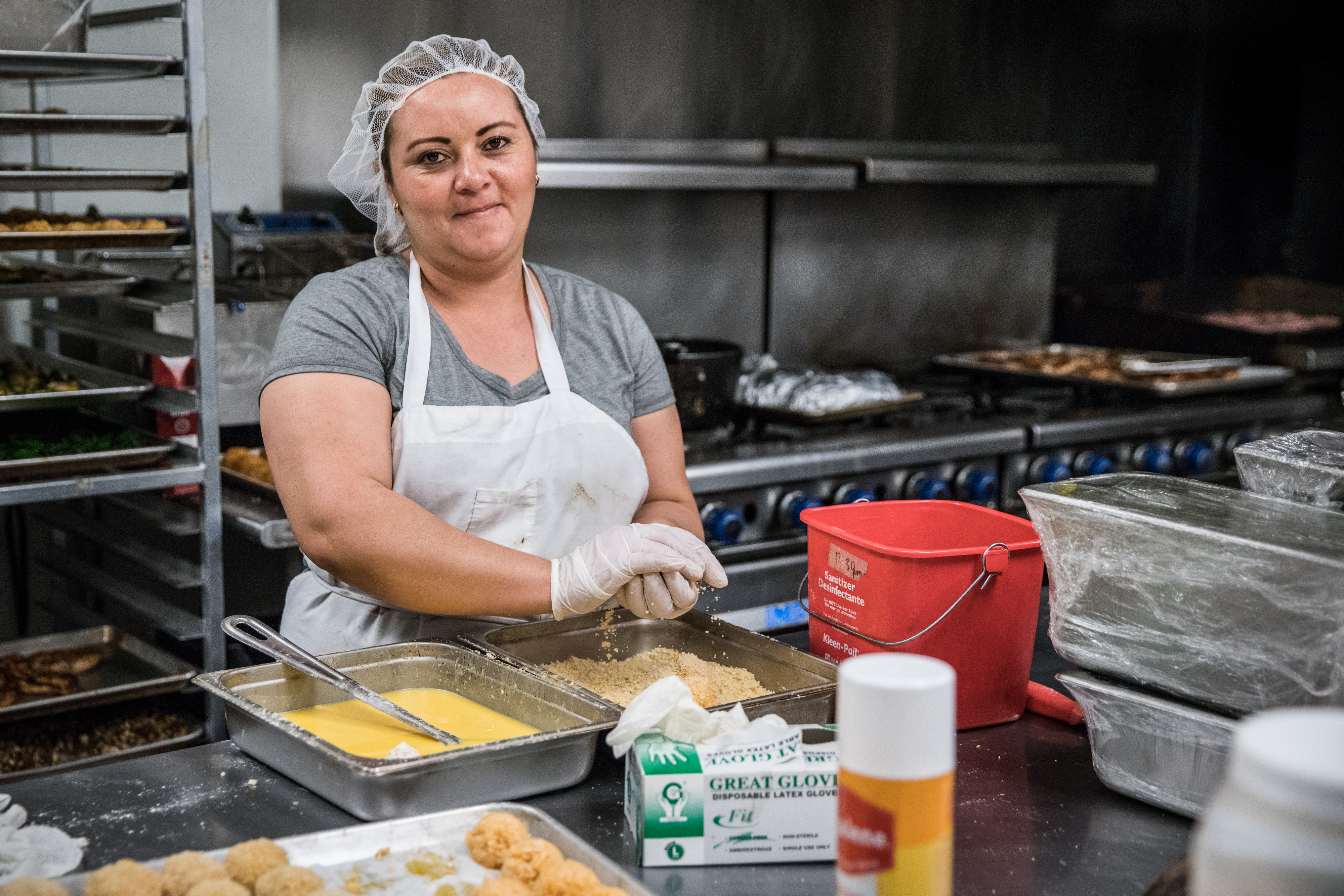LA Prep – Los Angeles
When the housing market crashed in 2008, Mott Smith and Brian Albert, Los Angeles real-estate developers with extensive experience in affordable and mixed-use…
Read MoreFinancial Partners:
|
Genesis LA |
NMTC Deal:
|
$5M+ Acquisition and predevelopment Square Feet: 63,821 sqft |
When the housing market crashed in 2008, Mott Smith and Brian Albert, Los Angeles real-estate developers with extensive experience in affordable and mixed-use housing, started looking for new opportunities. Speaking with friends in the food sector, the developers quickly learned about the barriers many talented chefs and food makers face finding a place to grow their businesses. “To us it was a real estate problem,” states Albert.
So the team began looking for a way to build a space where food makers could start and scale their businesses with ease. They knew that public health regulations, hundred of thousands of dollars in investment, and the time intensive process it takes to scale a business were barriers for many food entrepreneurs. After years of engaging hundreds of food makers and working closely with Public Health, the team created a kitchen facility where small food companies could spend their time making food good, without having to be experts in health code and real estate finance. LA Prep now hosts 50 unique food businesses in a shared commercial food manufacturing facility along with LA Kitchen, a lauded food justice project. When asked about why this shift to food made sense, Smith explains “Our mission has always been to use our resources to help open up markets for people who would have otherwise been shut out.”
The partnership with LA Kitchen, a healthy food access and job development program, proved to be a key to making this project viable. Founded by Robert Egger, who previously ran the successful DC Central Kitchen, LA Kitchen committed to using 30% of the 64,000 sq ft facility. As a tenant, LA Kitchen reclaims healthy food that would otherwise go to waste and provides training and jobs to those who face the most barriers to employment. The meals they produce are distributed at low cost to those most in need through shelters, senior centers, and non profit organizations. As Smith puts it, “We knew we wanted LA Kitchen involved in this project. They are doing incredible work to make food more accessible.”
Despite Smith and Albert’s experience developing large projects, financing was still the primary hurdle for the over $20M project. “Nobody had ever built something like this,” shared Smith, “When we went to the traditional companies they didn’t know how to underwrite it. So we needed a financial partner whose mission was closely aligned to be willing to take the risk on a totally new product type.”
With healthy food at the center, FreshWorks and its network of investors was ready to find a way to make this visionary project possible. “We knew there was potential” said Tom De Simone, President of Genesis LA, a FreshWorks lender. “These projects are a bit of a leap of faith” says De Simone, adding “It’s incumbent on us as an industry to be open-minded and see things differently by being flexible and entrepreneurial in our approach.”
With the support of FreshWorks financing, LA Prep opened in 2015 with 50 single business production kitchens, flexible cold and frozen storage, a demonstration kitchen, co-working space, and a staffed warehouse to help businesses with receiving and logistics. As a result of Smith and Albert’s deep partnership with the Public Health department, LA Prep also offers food makers an expedited permit approval process trimming a 50 page and and 8 months process down to only a 2-pages and a few weeks. The team ensured the most expensive infrastructure, including high-volume pipes, grease traps, and high-voltage electrical were all in place for entrepreneurs to easily plug in and start making food from the beginning.
Today, the LA Prep facility supports 270 local jobs, two-thirds of the participating enterprises are women-owned, and one-third are minority-owned. Business start up costs are dramatically reduced from an average of $250,000 – $300,000 in the larger market to $10,000 at LA Prep. De Simone emphasizes, “The barriers to entry for small business are tremendous, from a lenders perspective that’s a really hard loan to make.” With major barriers removed, LA Prep enables more food businesses to enter the market. The businesses are diverse, serving everything from small-batch ginger beers to beyond-meat burgers and meal deliveries. LA Prep is at 100% occupancy and a testament of what is possible.
Looking ahead, De Simone sees LA Prep as a promising example of getting traditional capital to small businesses and micro-enterprises. He asks lenders and investors to consider, “How do we find ways that low income people can continue to benefit from the jobs, training, and all that LA Prep presents as a model for the future of manufacturing?” As developers, Smith and Albert imagine a future where places like LA Prep are as common as apartment buildings and have already begun construction on a second facility. “What if when it’s clear community needs a place like this, it is not seen as risky, but good innovative financing?” considers Smith. He concludes, “We need to redefine risk.”
